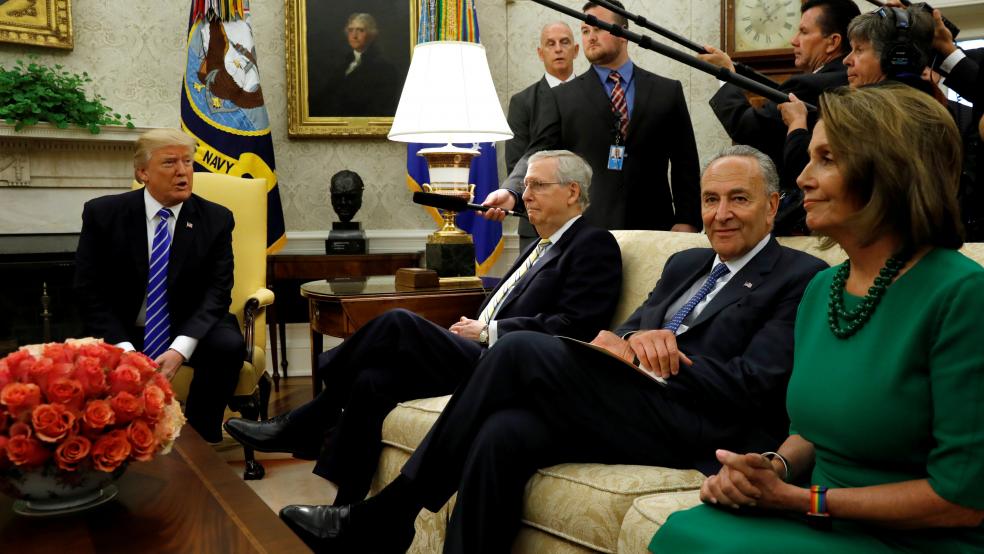Will divided government lead to anything beyond more legislative gridlock? President Trump and Democratic leader Nancy Pelosi, the presumptive next speaker of the House, have both spoken optimistically about the prospects for bipartisan progress in the wake of the elections.
“Hopefully we can all work together next year to continue delivering for the American people, including on economic growth, infrastructure, trade, lowering the cost of prescription drugs — these are some of the things that the Democrats do want to work on, and I really believe we’ll be able to do that,” Trump said at a White House press conference Wednesday.
The president also suggested that it may be easier to get things done with Democrats in control of the House: “Now, we have a much easier path because the Democrats will come to us with a plan for infrastructure, a plan for health care, a plan for whatever they’re looking at, and we’ll negotiate.” Those negotiated deals, Trump said, would then go to the GOP-controlled Senate, where they can pass with 100 percent Democratic support and some Republican support. “It really could be a beautiful bipartisan type of situation,” Trump said.
Some Republicans might get jittery hearing Trump lay out that kind of transactional approach, but his vision might be post-election fantasy anyway. Finding common ground on key issues won’t be easy — and Trump indicated that he won’t work with Democrats if they pursue investigations into him and his administration.
Prescription drug prices: This is an obvious priority for voters, and an area where both Trump and Democrats have promised results. Bringing down drug costs is among the top items on Democrats’ to-do list, and after it became clear that her party would control the House, Pelosi again pledged again to take “very, very strong legislative action” on it. “Any feasible, bipartisan legislation would likely take the shape of tweaks to Medicare or changes to the laws surrounding the rebates drugmakers give to pharmacy benefit managers, who are widely blamed for putting upwards pressure on list prices,” says The Washington Post’s Paige Winfield Cunningham.
Infrastructure: Another obvious possibility, but it won’t be easy. Trump has proposed spending some $200 billion in federal money in order to generate more than $1 trillion more in private, state and local spending. Democrats want to invest more federal money directly. Trump, Pelosi and McConnell on Wednesday all pointed to infrastructure as an area of potential cooperation.
Immigration: The new Democratic majority in the House “will increase the likelihood of some sort of Deferred Action for Childhood Arrivals (DACA) or border-wall funding legislation being approved in the next congressional term,” analysts at IHS Markit said Wednesday.





